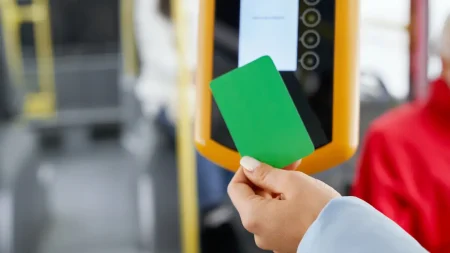Peer pressure is an inevitable part of growing up. From early childhood to adolescence, children and teenagers are confronted with the challenges of fitting in and making decisions that could shape their social lives. Peer pressure can influence a child’s behavior, thoughts, and even their self-esteem. While this is a natural part of social development, it is essential for parents to guide their children through it in healthy and positive ways. In this article, we will explore practical strategies parents can use to help their children navigate peer pressure.
Understanding Peer Pressure
Before you can effectively help your child manage peer pressure, it’s important to understand what it is. Peer pressure occurs when a child feels influenced or pressured by their peers to act in a way that aligns with the group’s behaviors, attitudes, or values. This influence can be direct, such as a peer offering a child to try something risky like skipping school or engaging in substance abuse, or it can be more subtle, like feeling the need to conform to a particular style or attitude.
Peer pressure can be positive, encouraging children to perform well academically or engage in healthy behaviors. However, it is often associated with negative behaviors, such as drug use, underage drinking, or bullying. During their teenage years, children are more susceptible to peer pressure due to their desire for acceptance and fear of rejection.
Start Early: Build Open Communication
One of the best ways to help your child navigate peer pressure is to foster an environment of open and honest communication from a young age. This will lay the groundwork for your child to feel comfortable coming to you with any issues or concerns they might face, including pressure from friends.
Create a Safe Space for Conversation
Make sure your child knows they can talk to you about anything without fear of judgment. Whether it’s about a funny story from school or something more serious, let them know you are there to listen without criticism. Ask open-ended questions like, “How was your day at school?” or “Who did you hang out with today?” This will give you insight into their social dynamics and allow them to express their thoughts freely.Listen Actively
Often, kids just want someone to listen. Avoid interrupting or offering solutions right away. By listening attentively and validating their feelings, you create an emotional connection that encourages your child to seek your guidance when they are facing challenges, including peer pressure.
Equip Your Child with Decision-Making Skills
In situations of peer pressure, the ability to make informed decisions is crucial. It’s not enough for parents to simply tell their children to avoid bad influences. Instead, teaching them how to evaluate situations and make choices for themselves is key.
Role-Playing Scenarios
Practice different peer pressure scenarios with your child through role-playing. You can act out situations where a peer might pressure them to do something unhealthy or inappropriate, and then guide them through how they could respond. For example, you could play the role of a friend offering a cigarette, and help your child practice saying, “No, I don’t smoke,” or “I’m not interested.” This provides them with the language and confidence they need to handle peer pressure in real-life situations.Discuss Values and Consequences
Help your child understand their own values. What is important to them? What are their goals and aspirations? Once they understand their core values, they are less likely to make decisions based solely on external pressures. Discuss the potential consequences of both good and bad choices. For example, explain how participating in risky behavior could affect their future opportunities or relationships.Foster Critical Thinking
Encourage your child to think critically and question the motives behind peer pressure. Ask questions like, “Why do you think your friends want you to do this?” or “What could happen if you make this choice?” Helping them analyze situations will strengthen their decision-making skills and enable them to act with confidence.
Encourage Healthy Friendships
One of the most effective ways to combat negative peer pressure is to encourage your child to surround themselves with friends who share similar values and make positive choices. Children are more likely to be influenced by their closest friends, so promoting healthy relationships is essential.
Get to Know Their Friends
Make an effort to meet your child’s friends and their parents. Organize playdates or outings to get a sense of the kind of influence their friends may have. You don’t need to be overbearing, but showing interest in their social lives allows you to assess whether their friendships are healthy and supportive.Encourage Group Activities
Encourage your child to engage in activities that promote positive social interactions, such as sports, volunteering, or creative hobbies. These environments allow children to build friendships based on shared interests and positive experiences, reducing the likelihood of negative peer influence.Teach the Importance of Assertiveness
Help your child develop assertiveness skills so that they can stand up for themselves when needed. Assertiveness is different from aggression—it’s about expressing one’s own opinions and needs respectfully. Teach your child how to politely but firmly say “no” to activities they feel uncomfortable with, and remind them that it’s okay to walk away from situations that don’t feel right.
Build Self-Confidence and Resilience
Children who are confident in themselves are less likely to succumb to peer pressure. One of the most effective ways to help your child resist peer pressure is by fostering a strong sense of self-worth.
Praise Effort, Not Just Outcomes
Encourage your child to embrace challenges and acknowledge their efforts, regardless of the outcome. This helps them build resilience and understand that they are valued for who they are, not just their achievements. Praise their perseverance and courage in trying new things, even if they don’t succeed every time.Promote Independence
Allow your child to make age-appropriate decisions and experience the consequences of their choices. Giving them a sense of autonomy helps them develop confidence and trust in their judgment. Start with small decisions, such as picking out their clothes or choosing extracurricular activities, and gradually expand to more significant choices as they grow.Help Them Set Goals
Encourage your child to set personal goals and work towards them. Whether it’s improving in a sport, getting better grades, or mastering a new skill, having a sense of purpose and direction gives your child the motivation to stay focused on their aspirations rather than succumbing to negative peer influence.
Be a Positive Role Model
Children learn a great deal by observing their parents’ behavior. The way you handle peer pressure, stress, and social dynamics will serve as a blueprint for how your child responds to similar situations.
Model Healthy Relationships
Show your child what healthy friendships and relationships look like. Demonstrate how to stand up for your values, express opinions respectfully, and make decisions that align with your principles. When they see you navigating peer pressure with confidence and integrity, they will be more likely to follow suit.Admit Your Mistakes
No one is perfect, and it’s important for children to see that making mistakes is a part of life. If you make an error in judgment or face peer pressure, be honest with your child about it. Share how you handled the situation, and what you learned from it. This demonstrates the value of self-reflection and growth.
Check also: Where to Get Help for Substance Abuse in South Africa
Navigating peer pressure can be challenging for children, but with the right support and guidance, they can learn to resist negative influences and make decisions that align with their values and aspirations. By fostering open communication, equipping your child with decision-making skills, encouraging healthy friendships, building self-confidence, and modeling positive behavior, you can empower your child to navigate peer pressure with confidence and integrity.










